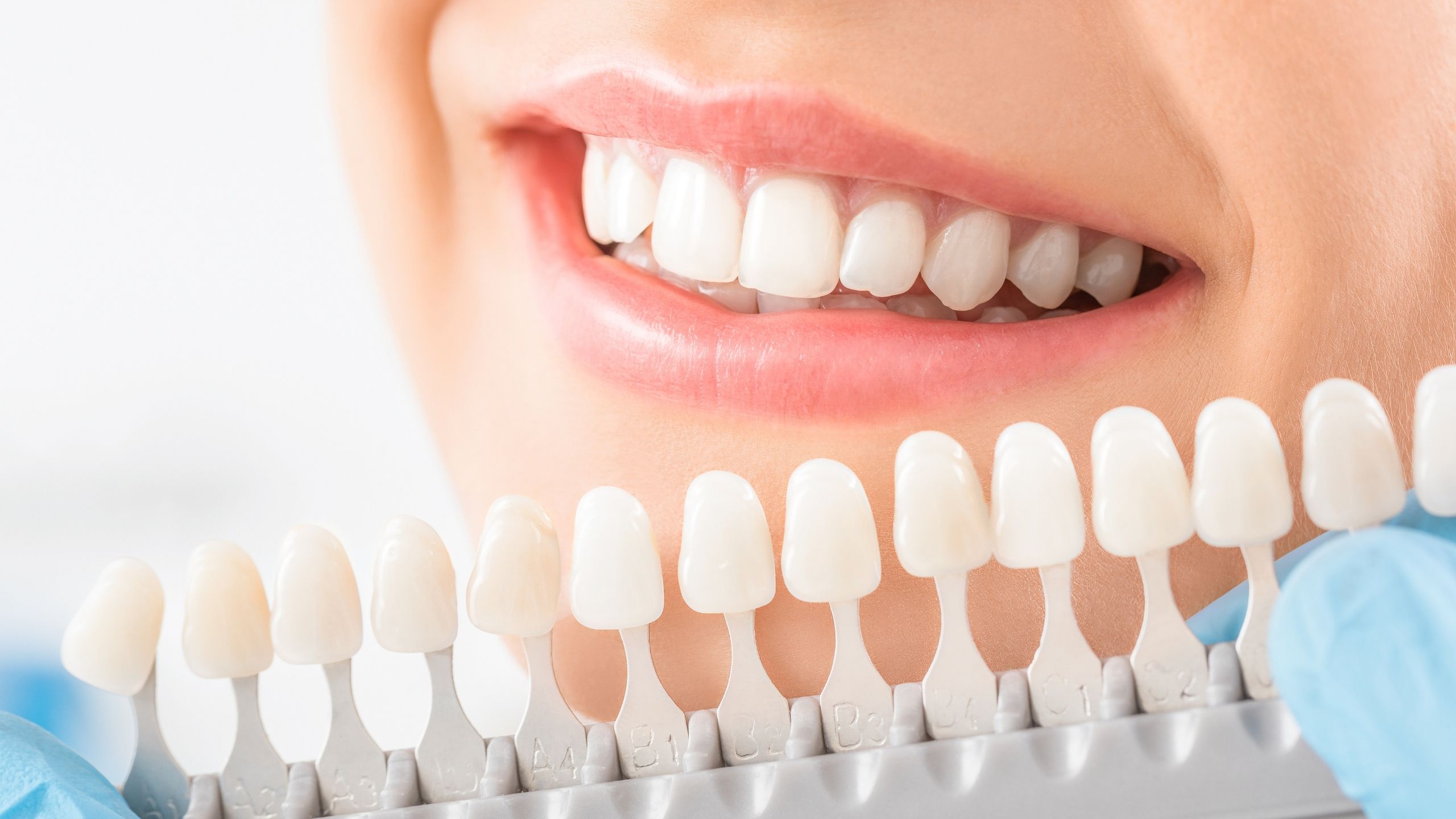Everything You Need to Know About Dental Crowns
Dental crowns are an essential dental restoration option that can help restore both the function and appearance of a damaged or weakened tooth. Whether you’re dealing with a cracked tooth, severe decay, or simply need a cosmetic enhancement, crowns provide a durable solution. In this guide, we’ll take you through everything you need to know about dental crowns, from understanding what they are and the different types available to the procedure involved in placing one. We’ll also explore how long dental crowns typically last, the benefits they offer for oral health, and the best practices for caring for your crown to ensure it remains in great shape for years to come. If you’re considering a dental crown, this blog will provide you with all the information you need to make an informed decision.
What Are Dental Crowns?
Dental crowns are custom-made caps that are placed over a damaged or weakened tooth to restore its shape, size, strength, and appearance. Often referred to as “tooth caps,” they completely cover the visible portion of the tooth, making it look and function like a natural tooth. Crowns are typically used to repair teeth that are severely decayed, cracked, or broken, or to protect a tooth that has undergone a root canal procedure. Made from various materials such as porcelain, metal, or a combination of both, dental crowns are designed to blend seamlessly with your natural teeth, ensuring a comfortable and aesthetically pleasing result.
Advice: Dental Crowns
Types of Dental Crowns: Which One is Right for You?
Dental crowns come in a variety of materials, each offering unique benefits depending on the specific needs of your tooth and your personal preferences. The most common types of dental crowns include:
- Porcelain Crowns: These are ideal for front teeth as they provide a natural look due to their translucency. Porcelain crowns closely mimic the appearance of natural tooth enamel, making them a popular choice for cosmetic dental work.
- Metal Crowns: Made from metals like gold, platinum, or other alloys, metal crowns are highly durable and resistant to wear. They are often used for molars, which endure significant chewing pressure, but they are less aesthetic due to their metallic color.
- Porcelain-Fused-to-Metal Crowns: These crowns offer a balance between strength and aesthetics. The metal base ensures durability, while the porcelain coating provides a natural appearance. They are commonly used for both front and back teeth.
- Zirconia Crowns: Known for their strength and biocompatibility, zirconia crowns are made from a durable ceramic material. They offer a great aesthetic finish and are resistant to chipping or cracking, making them a popular choice for both front and back teeth.
- Resin Crowns: Made from composite resins, these crowns are typically used as a temporary solution due to their lower strength compared to other materials. They can be a good option for short-term fixes or for those with budget constraints.
The right type of crown for you will depend on factors such as the location of the tooth, the amount of damage, your aesthetic preferences, and your budget. Your dentist will help you decide which option is best suited for your individual needs.
The Dental Crown Procedure: Step-by-Step
The process of getting a dental crown is typically completed in two visits to the dentist. Here’s a step-by-step breakdown of what you can expect during the procedure:
- Initial Consultation and Examination: During your first visit, the dentist will examine the affected tooth and may take X-rays to assess the extent of the damage or decay. If necessary, a root canal may be recommended before placing the crown to ensure the tooth is healthy.
- Tooth Preparation: The dentist will prepare the tooth by removing any decayed or damaged tissue, shaping it to fit the crown. If a significant amount of tooth structure is missing, the dentist may build up the tooth with a filling material to ensure the crown fits securely.
- Impressions: Once the tooth is prepared, the dentist will take impressions of the tooth and surrounding teeth using a special material or digital scanner. These impressions are used to create a custom crown that will fit your tooth perfectly.
- Temporary Crown: While the permanent crown is being made (usually taking a couple of weeks), the dentist will place a temporary crown to protect the tooth and maintain its function.
- Fitting the Permanent Crown: On your second visit, the dentist will remove the temporary crown and place the permanent one over your tooth to check the fit, shape, and color. Adjustments are made as necessary.
Cementing the Crown: Once everything fits perfectly and you are satisfied with the appearance, the dentist will permanently cement the crown onto the tooth. The final result should feel comfortable, and the crown will restore the tooth’s function and aesthetics.
How Long Do Dental Crowns Last?
The lifespan of a dental crown can vary depending on the material used, the location of the crown, and how well you care for it. On average, dental crowns last between 10 to 15 years, though some may last even longer with proper care. Here’s an overview of how long different types of crowns typically last:
- Porcelain Crowns: These generally last around 10 to 15 years. However, they are more prone to chipping or cracking compared to other materials, especially if you grind your teeth or chew on hard objects.
- Metal Crowns: Known for their durability, metal crowns (such as gold) can last 15 years or more. Their strong material makes them ideal for back teeth where heavy chewing occurs.
- Porcelain-Fused-to-Metal Crowns: These crowns offer a balance of strength and aesthetics, and they typically last around 10 to 15 years, depending on the amount of wear and tear they experience.
- Zirconia Crowns: Zirconia crowns are highly durable and resistant to wear, with a lifespan of around 10 to 20 years, making them a long-lasting option for both front and back teeth.
- Resin Crowns: While resin crowns are more affordable, they tend to wear down more quickly and generally last around 5 to 7 years.
The longevity of your dental crown is also affected by your oral hygiene habits, diet, and any habits such as teeth grinding. Regular visits to the dentist for check-ups and proper maintenance can help extend the lifespan of your crown.
Benefits of Dental Crowns for Oral Health
Dental crowns offer a wide range of benefits that go beyond restoring the appearance of a damaged tooth. Here are some key advantages of dental crowns for your oral health:
- Protection for Weakened Teeth: Dental crowns provide essential protection for teeth that are weakened by decay, cracks, or extensive wear. By covering the entire tooth, they help prevent further damage and reduce the risk of the tooth breaking or fracturing.
- Restoration of Tooth Function: If your tooth has suffered significant damage, a crown can restore its ability to function properly. This allows you to chew, bite, and speak with confidence, as the crown ensures the tooth performs like a natural, healthy one.
- Prevention of Further Decay: Crowns act as a barrier against bacteria and plaque buildup, protecting the underlying tooth structure from further decay and infection. This can help reduce the risk of future dental problems.
- Improved Aesthetics: For teeth that are discolored, cracked, or misshapen, dental crowns can dramatically improve their appearance. Crowns made of porcelain or zirconia are designed to blend seamlessly with your natural teeth, offering a more aesthetically pleasing smile.
- Support for Dental Bridges: Dental crowns are often used to anchor dental bridges in place, helping to restore the function and alignment of your teeth when multiple teeth are missing.
- Durability and Longevity: When properly cared for, dental crowns can last many years, making them a durable and cost-effective solution for tooth restoration. Their strength ensures they can withstand the pressures of biting and chewing.
Overall, dental crowns not only improve the appearance of your teeth but also play a crucial role in maintaining your oral health and preserving your natural teeth.
Advice: Teeth Whitening
Caring for Your Dental Crown: Tips and Maintenance
Proper care and maintenance of your dental crown are essential to ensure its longevity and functionality. With the right habits, you can keep your crown in excellent condition for many years. Here are some tips for caring for your dental crown:
- Maintain Good Oral Hygiene: Brush your teeth twice a day with a fluoride toothpaste and floss daily, taking extra care around the crown to remove any plaque or food particles. Using an antimicrobial mouthwash can help maintain overall oral health and prevent gum disease around the crown.
- Avoid Hard and Sticky Foods: While dental crowns are durable, they can be damaged by biting down on very hard foods, such as ice or nuts. Sticky foods like caramel and chewing gum can also cause the crown to loosen or damage the surrounding teeth. Try to avoid these foods to protect both your crown and natural teeth.
- Wear a Nightguard if You Grind Your Teeth: If you grind your teeth at night (bruxism), it’s important to wear a custom-made nightguard to protect your crown and natural teeth from excessive wear and pressure.
- Regular Dental Check-ups: Schedule routine visits with your dentist for check-ups and professional cleanings. During these visits, the dentist will check the condition of your crown and ensure there are no signs of damage or decay under the crown.
- Watch for Signs of Wear or Loosening: If you notice that your crown feels loose, or if you experience discomfort or pain around the crown, contact your dentist immediately. Catching any issues early can prevent more extensive problems in the future.
- Avoid Using Teeth as Tools: Don’t use your teeth to open bottles, packages, or other objects. This can put unnecessary stress on your crown and cause it to break or become dislodged.
By following these simple maintenance tips, you can ensure that your dental crown remains in good condition, providing you with both functional and aesthetic benefits for years to come.
Dental crowns are a reliable and long-lasting solution for restoring the function and appearance of damaged teeth. Whether you’re looking to protect a weakened tooth, improve your smile, or prevent further dental issues, crowns offer significant benefits for your oral health. By understanding the different types of crowns, the procedure involved, and how to care for them properly, you can make an informed decision and enjoy the lasting results they provide. If you’re considering a dental crown, consult with your dentist to determine the best option for your specific needs and ensure a successful outcome. With the right care, your dental crown can provide you with years of comfort and confidence.













